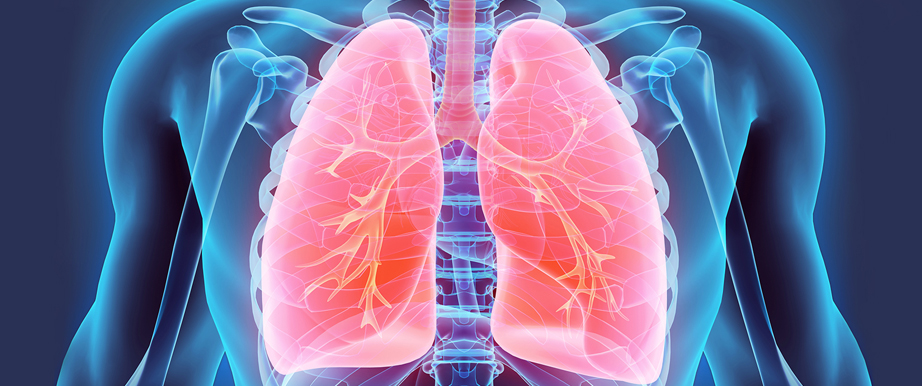Chest Medicine

Chest medicine, also known as pulmonology or respiratory medicine, is a medical specialty focused on diagnosing, treating, and managing diseases and conditions of the lungs and respiratory system. Pulmonologists are doctors who specialize in this area and address a wide range of issues related to breathing and lung function.
Key Areas of Chest Medicine
- Asthma: A chronic condition that causes inflammation and narrowing of the airways, leading to episodes of wheezing, shortness of breath, chest tightness, and coughing. Treatment often involves inhalers, corticosteroids, and bronchodilators.
- Chronic Obstructive Pulmonary Disease (COPD): A group of progressive lung diseases, including chronic bronchitis and emphysema, characterized by breathing difficulties due to obstructed airflow. Treatment includes medications (bronchodilators, steroids), pulmonary rehabilitation, and oxygen therapy.
- Pneumonia: An infection that inflames the air sacs in the lungs, which can be caused by bacteria, viruses, or fungi. Symptoms include cough, fever, chills, and difficulty breathing. Treatment usually involves antibiotics, antivirals, or antifungals, depending on the cause.
- Pulmonary Fibrosis: A condition where the lung tissue becomes scarred and stiff, leading to difficulty breathing. There’s no cure, but treatments like medications, oxygen therapy, and pulmonary rehabilitation can help manage symptoms.
- Tuberculosis (TB): A bacterial infection caused by Mycobacterium tuberculosis, primarily affecting the lungs. It can be treated with a long course of antibiotics but requires careful monitoring to prevent drug resistance.
- Lung Cancer: A malignant tumor in the lungs that can spread to other parts of the body. Treatment options include surgery, chemotherapy, radiation therapy, and targeted therapies, depending on the stage of cancer.
- Pulmonary Embolism: A life-threatening condition where a blood clot blocks one of the pulmonary arteries in the lungs, leading to chest pain, shortness of breath, and low oxygen levels. It’s treated with blood thinners, clot-dissolving medications, or surgery in severe cases.
- Pleural Effusion: A buildup of fluid between the layers of tissue lining the lungs and chest cavity. It may be caused by infections, heart failure, or lung cancer. Treatment may involve draining the fluid and addressing the underlying condition.
- Sleep Apnea: A condition in which breathing repeatedly stops and starts during sleep due to the collapse of the airway. It can lead to poor sleep quality, daytime fatigue, and serious complications like heart disease. Treatment often involves continuous positive airway pressure (CPAP) devices, lifestyle changes, or surgery.
- Cystic Fibrosis: A genetic disorder that causes thick mucus to build up in the lungs, leading to repeated infections and breathing difficulties. Treatment includes medications to thin mucus, antibiotics, and physical therapy.
- Interstitial Lung Disease (ILD): A group of disorders that cause progressive scarring of lung tissue, affecting the ability to breathe. ILD can result from various causes like environmental exposures or autoimmune diseases. Treatment focuses on managing symptoms and slowing disease progression with medications, oxygen therapy, and, in some cases, lung transplantation.
- Pulmonary Hypertension: High blood pressure in the arteries of the lungs, which can lead to heart failure if untreated. Treatments may include medications that relax the blood vessels, oxygen therapy, and sometimes surgery.
Diagnostic Tools in Chest Medicine
- Spirometry: A common test that measures how much air you can breathe in and out, and how quickly, helping to diagnose conditions like asthma and COPD.
- Chest X-rays: Often used to visualize the lungs and check for infections, tumors, or other abnormalities.
- CT Scans: Provide more detailed images of the lungs and are used to diagnose conditions like lung cancer, pulmonary embolism, or fibrosis.
- Bronchoscopy: A procedure where a thin, flexible tube with a camera is inserted into the airways to directly view the lungs and take tissue samples for biopsy.
- Pulmonary Function Tests (PFTs): A series of tests to measure lung capacity, volume, and the flow of air into and out of the lungs.
- Arterial Blood Gas (ABG) Test: Measures the levels of oxygen and carbon dioxide in the blood, which can help assess lung function.
Meet Our Specialist Doctor
One of the top Hospitals in Ghatkopar.




 Click to Book Appointment & Bed
Click to Book Appointment & Bed